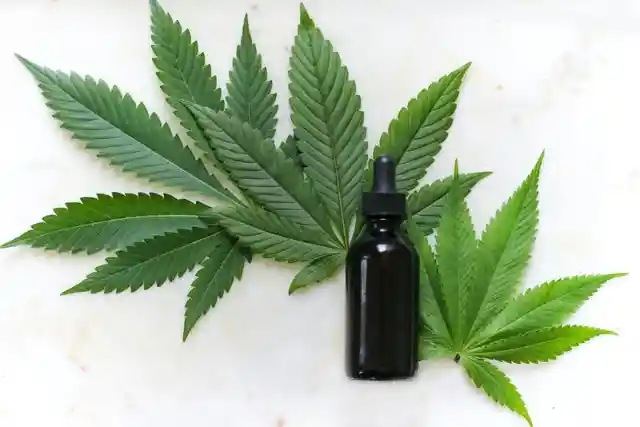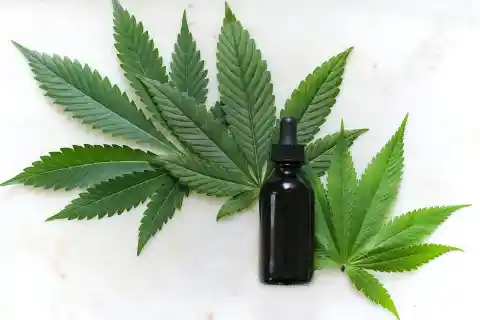Cannabidiol (CBD) has officially gone mainstream. Many people today, especially those who deal with chronic pain, intense anxiety, cancer-related symptoms, and/or difficult-to-treat neurological illnesses, could definitely use a miracle cure-all. So, it is not surprising that CBD oil keeps appearing in our search results. But can we rely on CBD oil to have the desired positive effects on our symptoms?


What is CBD? CBD is one of several cannabinoids (compounds) found in cannabis plants. Delta-9 tetrahydrocannabinol (THC) and CBD are two chemicals found in marijuana. These substances each have distinctive impacts. THC was previously the most well-known component in cannabis. It has a psychological impact and is the most active component. When someone smokes it or uses it in cooking, it produces a "high" that alters their state of mind. Contrarily, CBD has no psychotropic effects. When used, it has no effect on a person's mental state. The body may experience considerable changes as a result, but it also exhibits significant medical benefits. Benefits of CBD 1. Helps with anxiety and depression In prior animal studies, CBD had successfully reduced anxiety, and the results were somewhat unexpected. In the majority of studies, CBD doses of 10 mg/kg or less reduced some anxiety symptoms while doses of 100 mg/kg or more had almost no impact. This might occur due to the way CBD interacts with the brain. In little doses, CBD may behave similarly to the substances in the immediate environment that regularly bind to the receptor that "turns up" their signaling. Too much activation at this receptor location, however, could have the reverse effect at greater doses. 2. Treats epilepsy syndromes Epilepsy is a neurological ailment marked by recurring seizures. It is one of the most common nervous system disorders affecting people of all ages. Anti-seizure drugs and diet therapies, such as variations of the ketogenic diet, are used to treat epilepsy. CBD has been intensively researched for its potential help to people suffering from epilepsy. CBD is believed to improve various elements of health and quality of life for individuals while reducing the side effects of anti-seizure drugs. 3. Treats addiction According to certain studies, some circumstances where CBD can assist reduce cravings for drugs like heroin and tobacco. It may also aid in reducing cravings for alcohol, cannabis, opioids, and stimulants, according to animal models of addiction. 4. Reduces pain Since ancient times, CBD oil has been used as a pain treatment. It has been demonstrated to be a superior and safer alternative to opioids. However, since it's simpler for patients to go beyond the advised dosage with opioids, they have a poorer safety profile. Opioid abuse is still a concern in the medical community, but effective painkillers like CBD oil make a big difference in the struggle against opioid dependence. This is partly because it doesn't have any psychoactive effects. 5. Treats arthritis symptoms Arthritis is characterized by the degeneration of the tissues in and around your joints. A number of different types of arthritis can cause pain, stiffness, and loss of motion. Arthritis treatment often focuses on pain alleviation and increased joint function. According to a 2006 study, Sativex, a CBD-based botanical medication that was licensed in the UK in 2010, significantly improved the quality of sleep, pain when moving, and discomfort while at rest in rheumatoid arthritis patients when compared to a placebo. CBD was discovered to have both a pain-relieving and a disease-activation-suppressing impact. 6. Helps with PTSD symptoms Despite the fact that there are many PTSD treatments, there is mounting evidence that CBD, both topically applied and eaten, may aid in symptom management. According to some studies, ingesting CBD soon after a stressful experience may make it harder for the brain to create memories that could later develop and result in PTSD symptoms. The brain and central nervous system have the largest concentrations of CB1 receptors, which are present throughout the entire body. Through the use of CBD, serotonin and CB1 receptors are indirectly activated, which can lessen anxiety and promote better sleep, stable mood, and enhance attentiveness. 7. Eases diabetic complications In testing on human cells, it was discovered that CBD lessens the effects of high glucose levels on other cells in the body, which frequently come before the onset of diabetes and its different problems. Researchers came to the conclusion that CBD may be very beneficial for people with diabetes, diabetic complications, and arterial wall plaque formation with additional research. CBD may enhance the levels of glucose-dependent insulinotropic peptide (a hormone that ensures a sufficient release of insulin from digested food) and decrease the levels of resistin (which results in resistance to insulin, the protein that regulates sugar levels). 8. Inhibits neurological disease Studies have shown that CBD has anti-inflammatory and antioxidant effects. These traits, according to researchers, can offer significant neuroprotection, or defense against a wide range of neurological illnesses. Numerous preclinical research indicates CBD may be effective in treating multiple sclerosis, Parkinson's disease, and Alzheimer's disease. Understanding CBD labeling Although there are many CBD oils and tinctures available right now, it's vital to understand that not all of them are the same. The FDA has not yet approved any over-the-counter (OTC) CBD products, and some may not be as dependable or effective as others. What kind of CBD is present in it? Know what kind of CBD is present in the product you're considering first. Isolates: the only cannabinoid present is CBD. Full-spectrum: Contains THC as well as the other naturally occurring cannabinoids in the cannabis plant. Broad-spectrum: Does not include THC but contains a number of cannabinoids that are naturally present in the cannabis plant. According to some research, the entourage effect is a result of the interaction between CBD and THC. This indicates that they may be more potent when combined than when either cannabinoid is consumed alone.